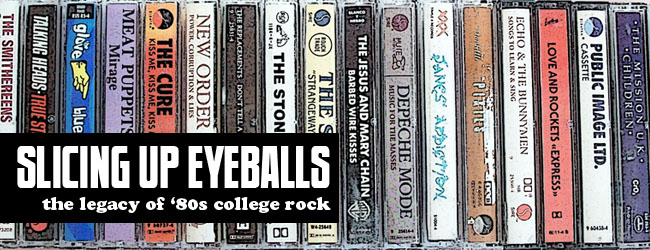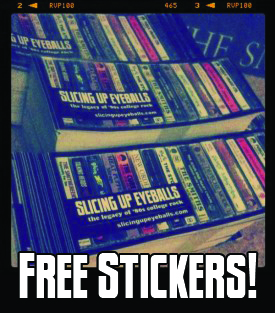
A new book set for publication early next year promises to deliver the first overarching history of American college radio, tracing the medium’s rise as a force in music culture through the ’80s and into the ’90s that helped bring to the mainstream artists like R.E.M., Nirvana and more.
The University of North Carolina Press is scheduled to publish historian Katherine Rye Jewell’s 432-page “Live From the Underground: A History of College Radio” on Jan. 9, 2024.
The book is available for pre-order now via Amazon.com.
Jewell is a published author, an associate professor of history at Fitchburg State University in Massachusetts, and a former college-radio DJ herself, having taken to the airwaves in the late 1990s and early 2000s at the student-run WRVU at Vanderbilt University in Nashville.
Her publisher describes the book this way:
Bands like R.E.M., U2, Public Enemy, and Nirvana found success as darlings of college radio, but the extraordinary influence of these stations and their DJs on musical culture since the 1970s was anything but inevitable. As media deregulation and political conflict over obscenity and censorship transformed the business and politics of culture, students and community DJs turned to college radio to defy the mainstream — and they ended up disrupting popular music and commercial radio in the process. In this first history of U.S. college radio, Katherine Rye Jewell reveals that these eclectic stations in major cities and college towns across the United States owed their collective cultural power to the politics of higher education as much as they did to upstart bohemian music scenes coast to coast.
Jewell uncovers how battles to control college radio were about more than music — they were an influential, if unexpected, front in the nation’s culture wars. These battles created unintended consequences and overlooked contributions to popular culture that students, DJs, and listeners never anticipated. More than an ode to beloved stations, this book will resonate with both music fans and observers of the politics of culture.
On her blog, Jewell writes about the seemingly wide chasm between the subject of her first book — Southern industrialists and the New Deal — and college radio, noting they share similar themes: “They are both about gatekeepers, constructing ideas about cultural authenticity, and about power.”
Jewell writes:
“Certainly, college radio DJs are a very different kind of gatekeeper, dedicated to very different ideas. But they were also champions of certain visions of culture (and sometimes they were conflicting). Some wanted to influence mainstream popular music, others were more focused on building local music scenes and even defying the capitalist culture industry. They are more sympathetic historical characters, and believe me, a lot more fun to write about than a bunch of industrialists defending paying grandmothers in their mill villages $6 a week for piecework.”
Read more at katejewell.wordpress.com.
PREVIOUSLY ON SLICING UP EYEBALLS
- History of goth explored in new books by The Cure’s Lol Tolhurst, The Membranes’ John Robb
- New book “Maps and Legends” promises comprehensive history of R.E.M.
- New book “Listening to the Music the Machines Make” tells story of synthpop revolution
- New oral history ‘Ska Boom!’ chronicles the rise of American ska and reggae
- Kate Bush to compile selected lyrics in new book ‘How To Be Invisible’












